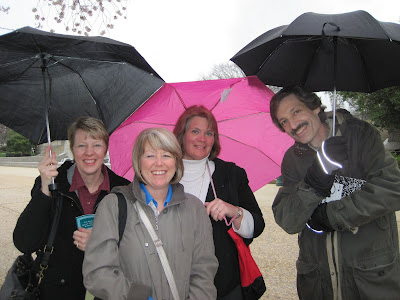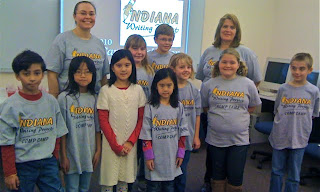Tuesday, November 1, 2011
Nominate a Colleague for Summer Institute 2012
Summer Institute Nomination Form
Tuesday, July 26, 2011
Meet the 2011 IWP Teacher Consultants
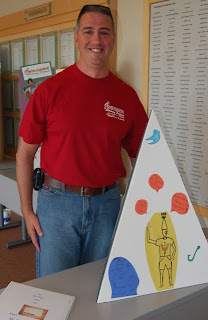 Mark Bartmas
Mark Bartmas_________________________________________
 Jay Bendes
Jay Bendes_________________________________________
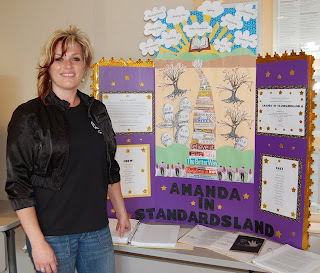 Amanda Croy
Amanda Croy_________________________________________
 Stacey Chester
Stacey Chester_________________________________________
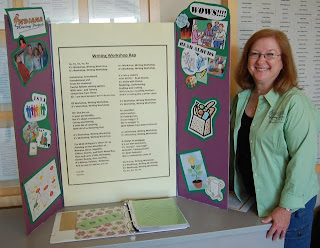 Janet Ellis
Janet Ellis_________________________________________
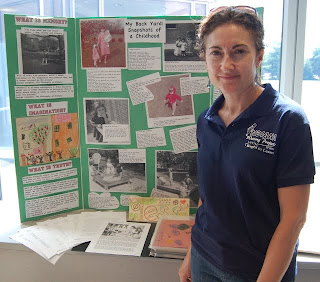 Tess Evans
Tess Evans_________________________________________
 Tracey Hoyer
Tracey Hoyer_________________________________________
 Meg McCreery
Meg McCreery_________________________________________
 Hollie Nicholson
Hollie Nicholson_________________________________________
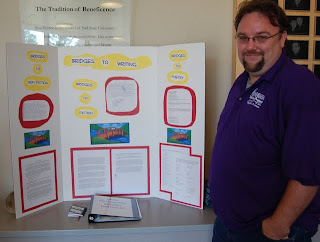 Drew Richardson
Drew Richardson_________________________________________
 Kristen Slone
Kristen SloneMonday, July 18, 2011
Inservice Academy, July 19-20

TC's,
If you are interested in participating please contact Linda Walker.
Sunday, May 8, 2011
Book Review of "In the Middle"

Nancy Atwell wrote In the Middle in 1998 through Heinemann Publishers, Portsmouth, NH. Having just read this masterpiece of a mentor text, I am sure that many who have gone before me have already gained much knowledge from this book. Although the length of the book can be daunting, the wealth of information inside is well worth the time and energy.
Atwell takes the reader through a mental voyage of how she set in motion shifting her classes over from the traditional writing and reading instructional models to Writing and Reading Workshop. She candidly shares her failures and successes. Atwell also excels at standing on the shoulders of those who have gone before her. She eloquently hands out the names of the mentors who influenced her on her teaching journey.
Full of details and great organizational tips, Atwell helps the new and veteran workshop instructor find many necessary and applicable tools to successfully work with students and the intricate details of Workshop. Craft, mechanics, organization and great examples are jammed into this reference guide.
One of the keys to Atwell’s workshop success is her clear examples of how she writes with and in front of her class. Penny Kittle, in Write Beside Them, mentions how her own class lacked depth, until she risked the writing process in front of her students. She credits Nancy Atwell for encouraging her to take on this challenge and take her class to the next level of risk in their writing through this modeling process.
I strongly encourage anyone who is seeking guidance in Writing or Reading Workshops to read or re-read Nancy Atwell’s In the Middle.
Review of "The Book Whisperer"
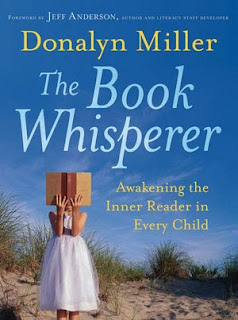
Reviewed by Shirley Thacker, TC '07
Sunday, April 10, 2011
IWP at NWP 2011 Spring Meeting
----------------------------------------------------
The Tea Party wave, freshmen members of Congress, budget cuts, protests on the streets: The 2011 NWP Spring Meeting certainly had a much different mood from last year’s. But even so- perhaps because of these changing dynamics- our work on Capitol Hill this year felt more productive, and definitely more immediate.
After my first Spring Meeting in DC last year, I came away feeling the electricity that moves our legislative process. People in power who influence lawmakers had listened to my stories and testimony, and I left as satisfied as a champion debater who has crafted nine beautifully extemporaneous arguments. We spoke to assistants who were eager to hear about our work because they had teachers in their families, as well as those who were simply place holders for absentee education aides. But for each new audience, we altered our argument, emphasized a particular point, shared a special insight, and all in five minutes or less to allow others time to speak. It was a beautiful thing.
This year, our appointments gave me that same charge, but there was something more, something even better. This year, I felt that our words were not just a rhetorical exercise; they truly made a difference.
Perhaps it was because there are new people on the Hill to educate about NWP in general. Perhaps it was because there is more at stake, with funds already being slashed in the rush for fiscal responsibility. Perhaps it was because there are misconceptions about the nature of NWP and its classification as an earmark. Or perhaps it was because I know what to expect and am better able to pull my weight as a team member now.
Whatever the reasons, this year’s NWP Spring Meeting was an exceptionally energizing and rewarding opportunity to reflect on my work with IWP and students, and to share that enthusiasm and passion with a few people in our government who ultimately control education reform. And I think the others on the team felt the same.
This year’s five-person Indiana delegation was broad and deep. We represented site work in education both across levels K-18 and across program areas- from experienced teachers training classroom teachers, to new TCs integrating NWP principles in the classroom, to college faculty and TCs preparing future teachers, to writers sharing our findings with others across the country. Together, we made a strong impression on Indiana Members of Congress about how NWP already consists of exactly the kind of education that reformers are craving: It is innovative, accountable, transparent, and competitive.
This opportunity to share with legislators my understanding and appreciation for the work of NWP and its teachers gives me hope for our site, our network, and our national organization. With the support or interest of most Indiana Members of Congress, IWP will reorganize for the moment, and then move forward in new directions and with renewed momentum. I am honored to be part of that movement.
Friday, February 25, 2011
Creating "The Typos": A Student Writing Club
Late this past fall, we started our first ever middle/high school writer’s club at Liberty Christian School. After returning from an IWP meeting energized with this new idea, I began to inquire with several of my students if they would be interested in being part of a writing club. After a week or so of asking about student interests, I realized there was a need, so I set the first date. Our first Writer’s Club date was Thursday, October 28.
With more than a little trepidation, I anticipated our first meeting. I had no idea how many
would attend or who. I wasn’t exactly sure of the flow and pace I wanted for the meetings. I spent a lot of time wondering how, what, who, etc… As the newbie’s began to file into the room, they seemed as unsure of the event as I was. Once we started, all was right. Stressing the need to connect our reading to our writing, we started off our first discussion with; what are we reading? This was a fun time for all of us to share and connect with each other’s reading habits. Now, we start every meeting with this question. Sometimes students bring the books they are reading with them and sometimes they don’t, but either way, they love hearing about each other’s reading interests, including my own.
Once we have shared our current reading territories, I usually lead the discussion into writer’s habits, writing habits, genre discussions, writing observations, etc… The discussion usually is determined by what I observe in a writing group or something I think about my own writing through the week. I usually start the discussion with an observation and a question. For example; I have heard that writer’s have what is called writing environments. I enjoy writing with soft music, a keyboard, and little distraction. What about you? This usually gets students started. But, if I am hearing crickets because they are not responding, I break it down further, like: “Do you like to write with or without noise?”
Our discussions are informal, noisy, fun and informative. We learn a lot about each other, about writing and writers in general. Some discussions are more colorful than others, but all seem to send us into thinking mode. After our discussions, we spend a chunk of time writing–30-50 minutes. The last 30 minutes of our time together, the students circle up the desks and we share. Sharing our pieces is voluntary. We do not usually critique, but I have thought about adding that component more recently.
Our average attendance is about 15 kids, ranging from 7th-11th grade. We were meeting every other week, but now we meet weekly. At first we were meeting from 2:45-4:00, but we kept running over, so now our meeting time is 2:45-4:30. About a month or so ago, we came up with our club’s official title, The Typos.
We have had an author, Deborah Zarka Miller, visit our group. She has written several books, but just recently published her first young adult book, A Star for Robbins Chapel. We asked her questions about publishing, writing as a career, her favorite writing environment, her favorite writing genre, etc… We have several in our club who are aspiring writers, so this was a lot of fun and very informative for them. Next week, the chief editor of The Herald Bulletin, Scott Underwood (husband of IWP TC ’07 Tammy Underwood) will be attending our writer’s club. We have already written our questions in anticipation of his appearance.
After attending our ISI 2010 Reunion meeting last week, I came back with several ideas to apply to our club and for its future. I will keep you posted on our club’s development and events. The Typos Writers’ Club was so easy to implement and is easily one of the highlights of my week. I highly encourage you to initiate your own writer’s club.
Submitted by Jeri Tarvin, TC ‘10
Sunday, February 6, 2011
Don't Forget to Join Us for the Indiana Network Retreat in February
Don't miss your chance to attend the annual National Writing Project Indiana Network Retreat on Friday and Saturday, February 25-26, 2011 in Indianapolis.
At the Indiana Network Retreat, you'll join friends from all six of Indiana's NWP sites. It will be a retreat that will invigorate you as a teacher-consultant, writer, and literacy leader.
The IWP site includes an online registration form and additional information about the retreat.
Sunday, January 23, 2011
Book Review of "Shimmering Images"

Lisa Dale Norton’s Shimmering Images, provides an engaging alternative to the now standard and more elementary techniques of identifying and accessing suitable topics for memoir writing. For middle and high schoolers, as well as adults, Norton has devised a visual metaphor that appeals to the visual-spatial writer as much as the verbal-linguistic one.
Norton’s concept is to capture watershed moments from our lives in visual depictions - rivers of life that bend and twist with each life-changing event. This aerial life “view from the mountaintop” encourages writers to use perspective, compassion, and reflection when writing about personal, life-changing events. Norton also tackles the issue of truth vs. honesty when dealing with potentially touchy subjects or memories. She finishes with a section on craft that is especially applicable to memoir writers.
In the middle or high school, classroom, I like to give students options of using butcher paper, sheets of letter paper taped together, or lengths of blank adding machine tape to create their rivers of life. Be sure to keep plenty of markers and colored pencils handy, as students may want to illustrate their rivers or color-code their annotations. Whatever media they choose, students can easily fold and tuck this writing tool into their sock drawer or tape it into their writer’s notebook to revisit often. And they will.
For guidance in writing meaningful memoir, get Lisa Dale Norton’s Shimmering Images: A Handy Little Guide to Writing Memoir, published by St. Martin’s Griffin in 2008 at Amazon for around $10.
Saturday, January 15, 2011
Join Us for the Indiana Network Retreat in February
Join friends from all six of Indiana's NWP sites at the Indiana Network Retreat. It will be a retreat that will invigorate you as a teacher-consultant, writer, and literacy leader.
The IWP site includes an online registration form and additional information about the retreat.
Upcoming Comp Camp Opportunities for Your Children, Your Students, and You
If you are interested in teaching Comp Camp in the future, please contact IWP. In the spring and fall, camp runs for ten Saturdays and is specifically geared towards students in third through sixth grade. During the summer, Comp Camp occurs daily for two weeks; separate camps are offered for students in grades three through six, and grades seventh through twelve.
Friday, January 14, 2011
Youth Writing Camps in the News

Shelbyville High School's second annual writing camp, led by Robin Sowder (IWP TC '02), was featured in the above Shelbyville News article entitled, "Happy Campers: Teens Seek Extra Writing Lessons".
The inaugural elementary- and secondary-level Comp Camps held in Alexandria Community Schools were featured in a story in the Anderson Herald Bulletin.



